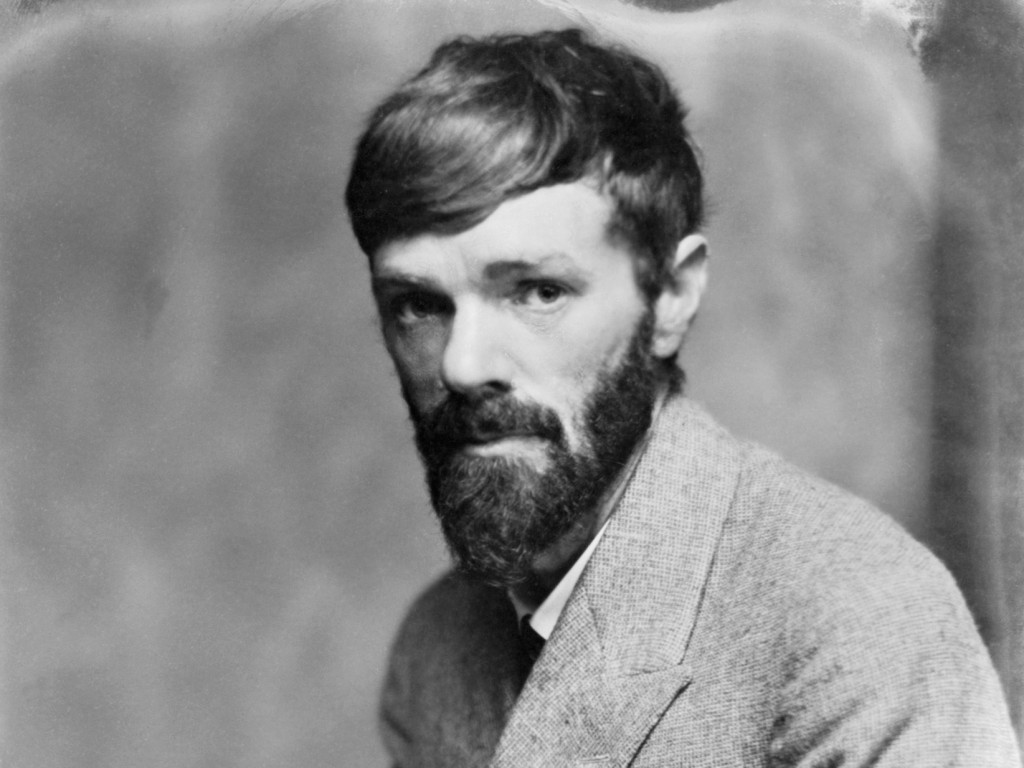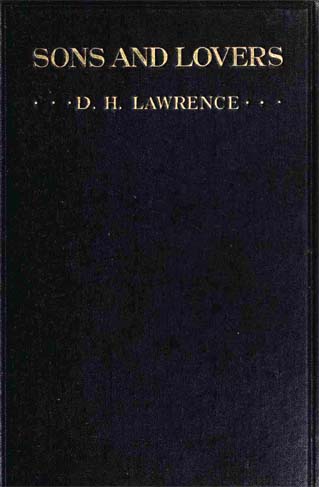 It should come as no surprise that our members occasionally read a book considered canonical that generates divergent opinions. Sons and Lovers by D. H. Lawrence had strong advocates and strong detractors at the Austin Athenaeum. I suppose this puts us in good company; from the first day the book was published opinions about it and about Lawrence himself have been widely varied.
It should come as no surprise that our members occasionally read a book considered canonical that generates divergent opinions. Sons and Lovers by D. H. Lawrence had strong advocates and strong detractors at the Austin Athenaeum. I suppose this puts us in good company; from the first day the book was published opinions about it and about Lawrence himself have been widely varied.
One British reviewer gives the book the consolation of being “A bad book by a very good writer.” Readers can apparently become quite animated by the frequency with which Paul Morel is found smelling flowers. Ford Maddox Ford, an influential figure on the newer writers of Lawrence’s generation and a friend of Lawrence himself, famously said of Lawrence’s earlier novel The White Peacock that it had “every fault that the English novel can have,” although he believed Lawrence to possess true literary genius. But don’t take it too hard, Dave. Other writers of acknowledged genius such as Victor Hugo and Charles Dickens are nonetheless criticized for their literary flaws even while enjoying the highest acclaim and universal gratitude of their readers.
Let’s just get everything out on the table. Perhaps it is idiosyncratic to his Nottinghamshire, lower class coal miner upbringing, but more than a few readers have fretted about how characters profess to “hate” one person or another. More problematic, but nonetheless noticeable and dragging on the narrative, are the occasional segments where Lawrence falls to telling instead of showing, multi-paragraph sequences consisting of bland statements and explanations punctuated by non-sequiturs. These prosaic episodes are perhaps pardonable after the reader has enjoyed a longer segment displaying Lawrence’s more habitual brilliance with words.
His abilities may also compensate, in the minds of many readers, for the somewhat mystifying psychological quagmire of the main character Paul Morel that prevented him from finally being satisfied with the most amiable and seemingly obvious love interest at hand, Miriam, a wet dishrag of a person. To say nothing of Clara, his other sometime lover, the fiery, voluptuous, suffragette. Though it is perhaps not stated explicitly, there can be little doubt that his romantic pathology is the result of the unhealthy codependent relationship with his mother. His final complaint with Miriam was that she didn’t make him “spiritual”, that as he says, “you love me so much, you want to put me in your pocket. And I should die there smothered.” Why can’t Paul settle down, we wonder. Something of the plight of the artist I suppose is in Paul’s destiny: seeking transcendence, he is nearly paralyzed in almost every, and especially the traditional and romantic, relationship (except his mother, of course).

I’ll not linger on the dreary observation that Lawrence was vilified in his day for his pioneering depiction of sexual situations. Exploding contemporary mores, he was accused of being a “pornographer who had wasted his considerable talents.” I say dreary because we can find Lawrence’s use of sex somewhat tame by today’s standards. And then simultaneously one wants to say to the prudish critics of Lawrence’s day, Wait til you see the 21st century.
This review is tending strongly to the negative aspects of the book, it is true. It would be well to mention a few positive qualities appreciated by all. Lawrence truly does have a great skill with with the written word. His characters and setting are realistic and well-described, and interesting to read about. I appreciated how the presence of physical abuse by Walter against his wife Gertrude, while alarming, doesn’t overwhelm the story. And though its reputation for sexual trailblazing may have long since become quaint, I for one appreciate a writer who can write more openly of one of the most natural human functions in the world. And it was still done, by today’s standards, with considerable discretion, largely “off camera” as it were.
I’ll end by relating the observation of our reading group that there was not a single purely admirable major character in the book, including Paul Morel, a quality not unheard of, but still unusual, and perhaps in keeping with Lawrence’s realism. Just 30 years earlier, pessimistic writers like Thomas Hardy gave us stories such as Tess of the D’Ubervilles, an idealized, irreproachable and tragic character beset by the cruelties of fate. Mark Twain was delighting readers while making poignant cultural commentary with Tom Sawyer and Huck Finn. But Joseph Conrad was also starting to spin his dark tales of human failure and brokenness. The modern period was looming and by 1913 Lawrence could summon a story mired in coal dust, awkwardly haptic and hairy, unsatisfied, unfulfilled, a literary interruptus, with a cast of characters alternately violent, insolent, selfish, peevish, arrogant, overly meek, oblivious, or possessed of any number of other flaws, while speaking authentically to the growing generation of lost modern souls. Lawrence’s fiction spoke in the vernacular of the 20th century, and foreshadowed the decades to come. It unquestionably influenced the trajectory of literature. And that is a singular accolade on top of a great literary voice.
You complete me.
Seriously though, great write up. When’s the next novel?
Matt
On December 17, 2017 1:15:07 PM Austin Athenaeum